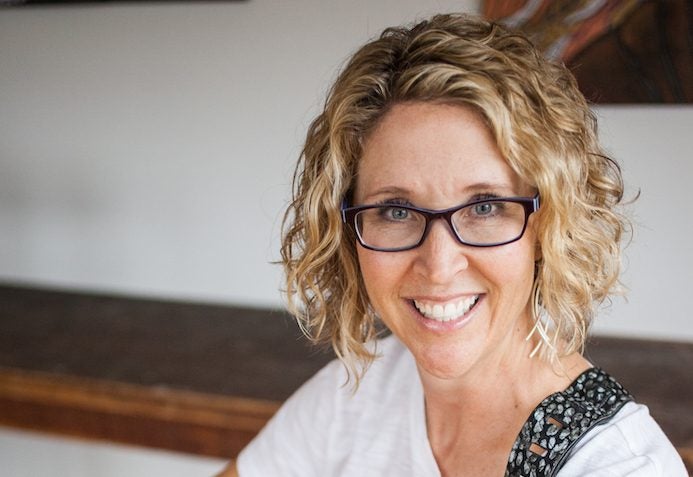SMITH: How far we’ve come … and so far still to go
Published 2:02 pm Friday, August 28, 2020

- Erin Smith is the owner of the OM place in Winchester, the author of “Sensible Wellness” and the online host of the OM channel. Follow her on Twitter @erinsmithauthor.
|
Getting your Trinity Audio player ready...
|
If he is living this tale when he sits to write, does he imagine himself as Sheherazade? Or as Shahrayar? — from my personal journal, March 1997
I took a creative writing class in grad school. The professor had this saying. “If you aren’t writing for your life, you shouldn’t be writing.”
His tagline was a reference to the character Scheherazade from the Arabic folk tale collection “1,001 Nights.” He told us that “real writers” lived that story when they sat down to join pen and paper.
Now, you might be familiar with the stories of Sinbad, Ali Baba and Aladdin. But fewer people know the more insidious tale that frames those 1,001 stories.
King Shahrayar married a beautiful maiden, who was unfortunately in love with another. She hadn’t been married long before she cheated on Shahrayar. When the enraged king found out, he had her beheaded. Then he set about to marry a different virgin every day, and subsequently beheaded them on the morning after they were married, ensuring that he would never be cuckolded again.
In an attempt to rescue the kingdom from the murderous ruler, the charming Scheherazade placed herself in front of the king for marriage. That night, Scheherazade started weaving an intriguing tale involving magic caves and wish-granting genies. As the dawn peeked over the horizon, she paused the tale at a cliffhanger moment.
“What happened then?!” Shahrayar demanded.
Scheherazade smiled. “I shall tell you more tonight, my love.”
And thus she kept her head on her shoulders. Scheherazade spun spellbinding stories for the rest of her life.
I was reading old journals recently when I came across an entry about this class. The professor was a pompous, misogynistic thriller writer who had found minor success with a few published short stories.
Most of his stories followed a predictable outline. The two main characters were men. One was a villain that had committed some violent, often sexual, act against a woman. The other was a Sam Spade-knockoff, a grizzled and grumpy gumshoe that ultimately captured the scoundrel and saved the day.
I never read a single story of his that passed the Bechdel Test.
Allison Bechdel was an American cartoonist who devised a measurement for the fair representation of women in fiction. It has two criteria.
- — Does the work have two or more women in it?
- — Do the women talk to each other (about something other than men)?
No and no. I always wondered which character the professor channeled when he sat down to write.
I write this on the 100th anniversary of women’s suffrage. I’m thinking of how far we’ve come … and how far we still have to go. A century of marching, Title IX, and shared #MeToo stories, yet 24 women per minute are still victims of rape or physical violence in America.
Women still earn only 78 cents for every $1 men earn, for the same work. Women continue to be employed in inflexible workplaces, especially when it comes to maternity leave, despite the fact that a mere 20% of American children live in married homes where their father works and their mother stays home.
In many states, women taking the bar exam still have to ask permission to change their tampon.
Growing up, I knew who Gloria Steinem and Shirley Chisholm were and why they mattered. I cannot remember a time I didn’t understand the significance of both the Equal Rights Amendment and the Roe v. Wade decision. My mom gave me her tattered copy of The Handmaid’s Tale when I was a sophomore in high school. My parents wished for a world where having a vagina wasn’t seen as a disability.
Yet while my parents shaped a strong feminist at home, I did not see their ideas embraced on a global — or even local — scale. The patriarchal society in which I found myself as an adolescent told me my worth was in being polite, pleasant and — most importantly — quiet.
That same culture told the boys in my class that they were entitled to treat women in a dehumanizing manner. Boys will be boys, after all.
Church doctrine told me my body was a lust machine that could not be trusted. The media tried mightily to shift my focus to my physical form; after all, if I was completely absorbed in losing weight and attracting a man, I wouldn’t have the mental bandwidth to question the conventional gender paradigms.
There was huge profit to be made off the sexualization and objectification of my female body.
It is estimated that nearly 90% of the women in my generation have #MeToo stories. Ninety percent. Are we still no better off than poor Scheherazade, being fed the line that women must be controlled, assaulted or murdered for our own good?
I’m disappointed in us collectively. But I also want to think it’s getting better for my daughter’s generation. Real change is often glacial, yet we are starting to see small shifts.
Lots of “untouchable” predators have lost their jobs (and Harvey Weinstein is in jail). States are now banning the nondisclosure agreements that covered sexual harassment and protected so many of those predators.
A record number of women are serving in Congress, meaning women have a louder voice when it comes to enacting policies. We have a fierce and brilliant woman on the Democratic vice-president ticket.
May all women take these small victories and run with them.
Erin Smith is the owner of the OM place in Winchester, the author of “Sensible Wellness” and the online host of the OM channel.





